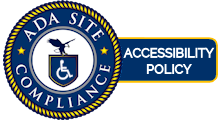The Federal Trade Commission testified before a Senate subcommittee on February 1, 2022, about the aggressive steps the agency is taking to police against pandemic predators who are capitalizing on the COVID-19 crisis to defraud American consumers.
Testifying on behalf of the Commission, FTC Bureau of Consumer Protection Director Samuel Levine, said the Commission has encountered disturbing trends and noted a surge in consumer complaints stemming from a broad range of deceptive COVID-related schemes. In the past 12 months, the FTC has received more than 292,000 reports associated with COVID-19 frauds, reflecting $674 million in fraud losses.
Every Campaign Involving COVID….Gets an Aggressive Second Look!
By: Linda Goodman
The Federal Trade Commission testified before a Senate subcommittee on February 1, 2022, about the aggressive steps the agency is taking to police against pandemic predators who are capitalizing on the COVID-19 crisis to defraud American consumers.
Testifying on behalf of the Commission, FTC Bureau of Consumer Protection Director Samuel Levine, said the Commission has encountered disturbing trends and noted a surge in consumer complaints stemming from a broad range of deceptive COVID-related schemes. In the past 12 months, the FTC has received more than 292,000 reports associated with COVID-19 frauds, reflecting $674 million in fraud losses.
“The Commission will remain vigilant in protecting the public from harms that stem directly and indirectly from the COVID-19 pandemic. The FTC is committed to tackling emerging threats, adjusting our strategies wherever necessary, and working in close coordination with our law enforcement partners at the local, state, and federal level,” the testimony states.
The agency also expressed its gratitude for its expanded authority under the COVID-19 Consumer Protection Act of 2020. What was that?
It was a law passed in December 2020 – the COVID-19 Consumer Protection Act – that imposes monetary penalties on violators. Although it was passed through an appropriations bill – it boils down to this. For the duration of the coronavirus public health crisis (in which there is no anticipated ending), it’s a violation of the law to engage in a deceptive act or practice that is associated with “the treatment, cure, prevention, mitigation, or diagnosis of COVID-19” or “a government benefit related to COVID–19.” Congress mandated that a violation of the law “shall be treated as a violation of a rule defining an unfair or deceptive act or practice prescribed under section 18(a)(1)(B) of the Federal Trade Commission Act,” and violations can result in financial penalties. So, just as the Supreme Court made clear that Article 5 of the FTC act does not allow the imposition of fines, Congress is handing them back…quietly.
Since then, with the new financial incentive, the FTC has pursued cases against more than a dozen COVID-19 marketers (they call them “predators”), with more investigations in the pipeline. The FTC also issued cease-and-desist demands to more than 425 companies making false or unsubstantiated COVID-19 claims, giving them 48 hours to stop their scheme or face federal charges. The agency also notified state and local authorities of scammers’ possible criminal misconduct and alerted online companies about the fraudulent actors using their platforms to break the law.
For those of you interested or invested in Cryptocurrency – this too is defined as a “scam”. Unapproved medical treatments are also now defined as “fraud”.
On a last note, the commission continued to complain about the Supreme Court ruling last year in AMG Capital Mgmt., LLC v. FTC, 141 S. Ct. 1341 (Apr. 2021), which held that the FTC does not have the ability to obtain monetary relief under Section 13(b) of the FTC Act. Without the ability to gut defendants of their funds to fight the FTC, it has lost much of its influence. However, the FTC testified that it is reviving older tools such as its Penalty Offense Authority to deter unfair and deceptive practices on a market-wide basis. This past October, the Commission sent Notices of Penalty Offense to more than 1,100 businesses regarding deceptive or misleading earnings claims and fake reviews and other misleading endorsements, and to 70 for-profit colleges regarding deceptive or misleading job and earning prospects.
The bottom line – the FTC is back on the hunt – and all campaigns COVID related are at issue.
© 2022 Cliclaw.com
(Image Credit: iStock Photo)
This article is for information purposes only. It is not intended to be and should not be relied on as legal advice for any particular matter.

